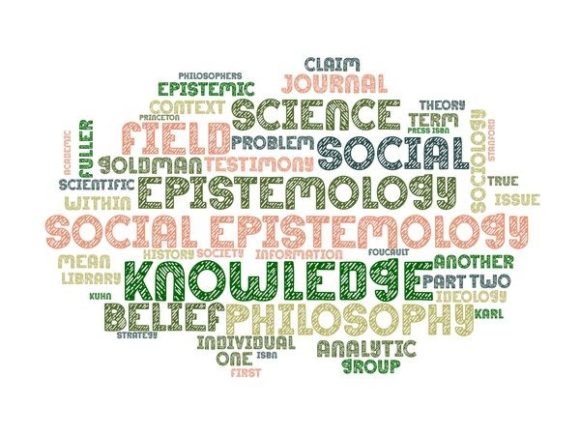- Викладач: Longin Louis
Collective intelligence - an integrative view
Many of humanity's great achievements and scientific advances are rooted in the collective problem solving and decision making of teams, institutions and cultures. But what is particularly "collective" about these processes? How is a group-level view different from an individual-level view? Why do groups sometimes make bad decisions and what, if anything, can be done about it? This course presents an integrative account of collective intelligence by bringing together the complementary perspectives of social epistemology, philosophy of science, psychology, cultural evolution and AI (with their assorted theoretic, empirical or computational methods). Topics covered include rationality, diversity, consensus, exploration, bias, social learning, expertise and trust.
- Викладач: Sulik Justin
How do minds work? How do we perceive things, believe things, or make decisions? Philosophy of Mind and psychology are two disciplines that aim to understand the human mind, sometimes from overlapping perspectives but usually in very different ways. This course sets up a dialogue between these two disciplines that share an object of study, but that differ in their aims, methods and traditions.
The first half of the course will explore philosophical questions about psychology as a science, applying concerns from the Philosophy of Science to critique psychological theories and methods. This will include the status of explanations in psychology, along with topics such as eliminativism and reductionism. The second half of the course will focus on specific topics that Philosophy of Mind and psychology share, such as perception, emotions, beliefs, rationality, and non-human minds (animals/AI).
- Викладач: Sulik Justin
Many of humanity's great achievements and scientific advances are rooted in the collective problem solving and decision making of teams, institutions and cultures. But what is particularly "collective" about these processes? How is a group-level view different from an individual-level view? Why do groups sometimes make bad decisions and what, if anything, can be done about it? This course presents an integrative account of collective intelligence by bringing together the complementary perspectives of social epistemology, philosophy of science, psychology, cultural evolution and AI (with their assorted theoretic, empirical or computational methods). Topics covered include rationality, diversity, consensus, exploration, bias, social learning, expertise and trust.
- Викладач: Sulik Justin
As we navigate an increasingly interconnected world, understanding the social dimensions of knowledge becomes essential. This reading course immerses students in the rich interdisciplinary field of social epistemology. The central theme of this course is examining how social epistemology intersects with the practical aspects of coexisting in a shared social space, individuals and communities. Drawing on insights from philosophy of mind, sociology, and cognitive science, students will critically examine how knowledge is shaped, validated, and distributed within social groups, exploring key concepts such as collective belief and testimony. We will explore the role of shared knowledge in fostering cooperation and oppression, resolving conflicts, building trust or suspicion within diverse communities, addressing ethical considerations, and emphasizing the responsibilities of creating and disseminating knowledge in collective contemporary contexts.

- Викладач: Zapata Gotelli Jimena
In this course, we will study how language functions as a dynamic tool in constructing social, moral and political reality. Through an interdisciplinary approach drawing on philosophy of language, mind and moral psychology, we will explore how language influences stereotypes based on individual and social identity markers such as gender, ethnicity or disability. But also how, through our words, we can support, question or change social and political structures and social dynamics of inclusion and exclusion. We will also investigate how the democratic principle of freedom of expression copes with hate speech and offensive speech, linguistic discrimination, and oppressive discourses. Finally, we will explore how language is employed in public discourse, media communication, and digital platforms to shape social and political narratives, social movements, political activism and the formation of collective identities.
In sum, students will gain an understanding of the social and political dynamics of language use, empowering them to navigate and critically assess the role of language in shaping diverse and dynamic societies.

- Викладач: Zapata Gotelli Jimena
In this course we will look at a selection of some well-known as well as some fairly new topics at the intersection of philosophy, game theory, robotics, and artificial intelligence (AI). Is technology merely a tool we use or does it shape our lives in more profound ways? ▪ Can persons exist as digital entities? ▪ Will people cooperate with or exploit artificial agents? ▪ Can recommendation engines lie? ▪ How can the use of drones in warfare affect how wars are waged? ▪ Should we develop sex robots? ▪ How to reconcile privacy, liberty, and the benefits of facial recognition technology?
These are the type of the questions that we'll look at in this course. An interdisciplinary approach that combines philosophy, psychology, game theory, and computer science, with a good dash of science fiction, to study these questions is gaining popularity. This course will invite students to explore how these disciplines mingle in tackling the above questions and why tackling them is important in the first place. We will cover topics ranging from some of the well-known philosophical and ethical concerns regarding our use and reliance on technology to very recent developments at the intersection of behavioural game theory and human-AI interaction.

- Викладач: Karpus Jurgis
- Викладач: Meertens Nadine
- Викладач: Scarafone Antonio
- Викладач: Scarafone Antonio
Is there a formal way to study our decisions and tell if and when our choices are rational? ▪ What does game theory have to say about how we interact with others and what can we learn about our behaviour from game theory experiments? ▪ How do social norms shape our behaviour and what insights can we draw from models of biological and cultural evolution? ▪ Should governments use experimental psychology research to “nudge" people into eating healthy, saving for retirement, donating organs, and other forms of seemingly desirable behaviour? ▪ Why do we sometimes lack self-control and what do we do about it?
These are some questions that we'll look at in this course. An interdisciplinary approach that combines philosophy, economics, psychology, and computer science in the study of these questions is presently gaining popularity. This course will introduce students to decision-theoretic and game-theoretic study of rational choice and social interaction. We will cover topics ranging from well known philosophical riddles concerning the foundations of rational choice theory to very recent developments in behavioural game theory concerning modes of reasoning that people use in interactive decision-making.
The course is aimed at upper level undergraduate and postgraduate students in philosophy, economics, and other areas of research that have an interest in formal analysis of human decision making. The course doesn't require prior knowledge of decision theory, game theory, or economics, and all key concepts will be introduced and explained in course meetings. Basic knowledge of introductory material in these fields will help as well as a general aptitude for working with numbers and probabilities (basic math).

- Викладач: Karpus Jurgis